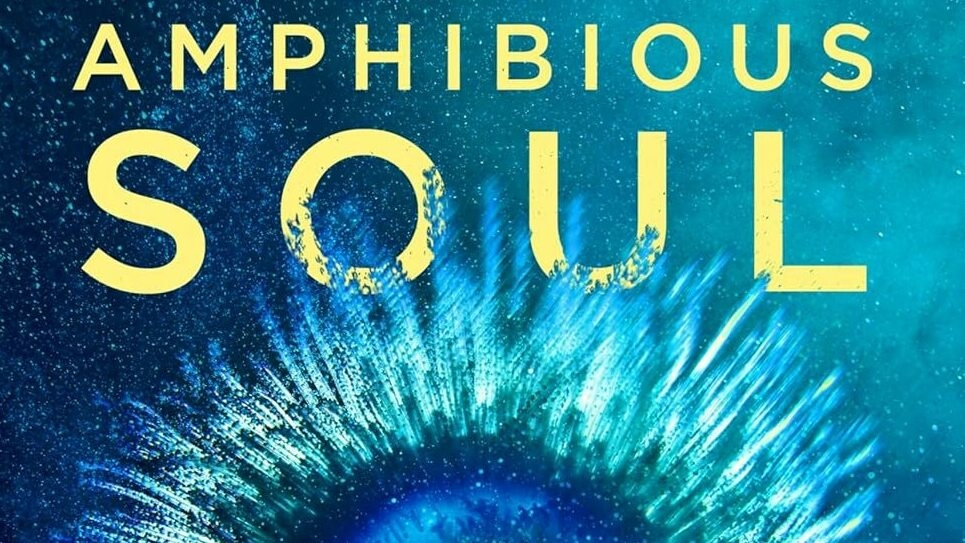

Movie My octopus teacher It tells the story of a man who dives underwater every day into a South African kelp forest and forms an intimate bond with an octopus. That man – diver and filmmaker – is Craig Foster, who has delighted millions of nature lovers around the world and won the 2021 Academy Award for Best Documentary.
Now in a new book, Amphibious Soul: Finding the Wild in a Tamed WorldFoster describes the entire ecosystem of the Great African Maritime Forest at the Cape of Good Hope in South Africa and the transformative role it played in his quest for wildness. As the book’s amphibious title suggests, Forster is as (perhaps more) at home in the ocean as he is on land.
Foster’s incredible encounters with sea life are perfectly captured in this story. He recalled that for several months he spent every day “visiting a rocky crevice where a huge male slime fish lived” and that the fish became very calm in his presence. “Returning to the same place, observing subtle changes, and continuing to ask questions replenished my curiosity,” he writes.
Foster’s deep connection to place reminds me of birdwatchers paying close attention to nature in their own yards or local parks. In fact, Foster emphasizes that any of us can find wildness where we live: “We can all develop a more playful relationship with nature, whether that means collecting crisp leaves or smooth rocks for our Artworks, or watching squirrels performing acrobatics outside the window.”
The healing power of nature is Foster’s focus, and a very personal one at that.before he has any idea My octopus teacher, he was exhausted from long hours working on the film. He found relief in cold immersions, whether in the ocean or in homemade boxes of ice water. But then, after the huge global attention on the Octopus movie and on himself, he suffered from insomnia, and some nights he only slept for 10 minutes. Broken physically and mentally, he felt a powerful force pulling him back into the wild.

To fully immerse yourself in the story of his quest for a wild cure, it’s necessary to go with Foster’s flow and embrace his ongoing, almost mystical reverence for “our ancestors.” I read his belief that modern humans can regain their ancestral connections with wild animals with a wild heart—but inevitably, I read with an anthropologist’s sensibility. Is it possible to replicate “man’s natural state”? Is there a unique way to describe our ancestors’ experiences with animals? Given the long history of human evolution, who are the ancestors?
Is there a hint of romanticizing the past here? Referring to “our non-violent origins,” Foster added, “It wasn’t until the advent of agriculture that the reciprocal relationship with wildlife we had enjoyed for some 300,000 years began to unravel, and with it our psyches.” However, serious anthropological scholarship suggests that warfare began 200,000 or 300,000 years ago, much earlier than the 12,000 years since agriculture began.
One of the more important threads in the book is the tracing of a powerful connection with nature. At first, I thought Foster meant simply looking for traces of animals in dirt, mud, or snow, but his definition was more comprehensive and eye-opening: “Any trace left by any living thing or plant, sand, or rock . Running water may also leave traces, or lightning may strike trees.
For amphibians, the greatest pleasure comes from underwater tracking: Foster taught himself to spot the traces of molluscs in the sand on the backs of stingrays, or the traces of prey on octopus shells. It’s so spectacular to observe the underwater universe in such detail! Foster once again draws from his own experience to encourage the rest of us: “Start small and work your way up,” Foster advises. In addition to looking for marks on the ground, “look for marks on plants, trees, rocks or walls.”
Foster’s writing is rooted in his own learning from numerous mentors, including Aboriginal people, and his desire to share and spread his joy in nature. This book is filled with a generous spirit.
That’s probably thanks to the octopus amphibious soul It’s in the outside world. Foster now invites us to recognize the intrinsic value of the entire African maritime forest ecosystem and all ecosystems that contain wilderness.
Barbara J. King is biological anthropologist emeritus at the College of William and Mary. After writing about grief and love for animals, and how we can all develop greater compassion for animals, she is now writing about cats for her eighth book.Find her on X (formerly Twitter) @bjkingape

